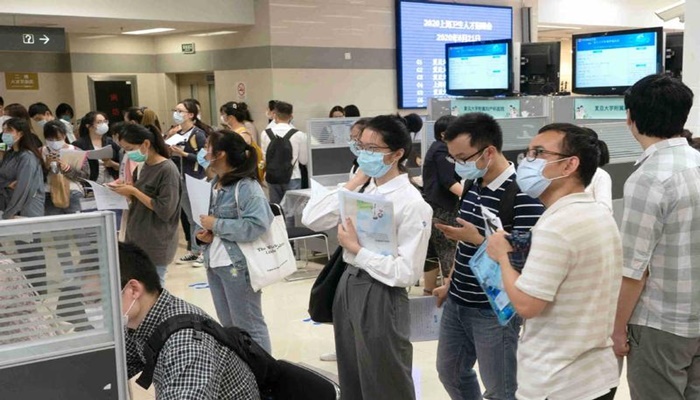When Crystal graduated from Peking University — one of China’s most prestigious institutions — she was among the top 10 percent of her class, had four internships at major tech firms including ByteDance, and had taken part in case-study competitions with global consulting firms. But instead of landing a coveted job in tech or finance, Crystal found herself enrolling in a master’s programme. “There’s no guarantee of a job out of undergrad anymore,” she told the Washington Post.
Crystal’s story is becoming increasingly common across China. A combination of post-pandemic economic turbulence, global trade tensions, and a saturated graduate labour market has dramatically reshaped the job outlook for even the most qualified students. Many are discovering that elite degrees alone no longer open doors — and that a graduate degree is now a basic requirement, not a bonus.
Master’s degrees as the new minimum
Historically, most Peking University graduates pursued further education, often as a pathway to higher salaries. Now, they do so out of necessity. According to recent data, 66 percent of Peking’s class of 2024 enrolled in Chinese graduate programmes — up from 48 percent in 2019. Tsinghua University saw a similar jump from 54 percent in 2013 to 66 percent in 2022.
“It used to be about boosting your earning power,” said Northwestern University economist Nancy Qian. “Now, it’s about qualifying for entry-level jobs.” Even after graduate school, many young Chinese are facing slim prospects, stagnant wages, and long periods of unemployment.
A fiercely competitive labour market
This downturn has hit hardest among those least expected to struggle: graduates from China’s elite universities. New data shows the youth unemployment rate for 16- to 24-year-olds at 14.9 percent as of May, down from a peak of 21.3 percent last year — though the government now excludes students from its calculations.
“Students are fighting really hard to get pretty mediocre-paying jobs,” said Qian. “The kind that don’t allow for financial independence.”
Internships, certifications, and test prep for corporate assessments have become prerequisites even before applying. Dong Jiachen, who recently completed her master’s in sociology at Peking University, interned at six companies before landing a full-time job at Meituan. “Just going to grad school is not enough,” she said.
The fallout of degree inflation
The oversupply of degree-holders has diluted their value. “Graduate students today are like undergraduates of the past,” said Qi Mingyao, founder of telecommunications firm Ruihua. His company, like many others, has downsized significantly since the pandemic and only considers hiring master’s degree holders for future roles. “We need more specialized skills,” Qi said.
This shift in employer expectations has created what some experts call “degree inflation,” where each tier of education becomes less meaningful as more people achieve it — a trend with growing economic and social consequences.
Broader implications for China’s future
The instability in the graduate labour market is rippling into other areas of life. Economic insecurity is prompting many young people to delay or avoid marriage and parenthood, deepening China’s demographic challenges. “When you have a lot of youth unemployment, all the normal mechanisms for socializing, marrying, and starting families break down,” Qian explained.
At the same time, job-seekers are becoming more selective. According to Lily Liu, former CEO of a major Chinese recruiting platform, recent graduates are looking for more than just a salary. “They care about company culture, industry values, proximity to home — and if those don’t align, they just go back to school,” she said.
A generation under pressure
For now, Crystal is preparing to begin work at a major tech firm in Beijing after completing her master’s. But her outlook is tempered by realism. “If I compare myself to Americans or Europeans, of course I’ll be unhappy,” she said. “But when I think about my parents’ generation — the long hours, the poor conditions — it just feels like it’s our turn to shoulder the hardships that come with our generation.”
For China’s young and highly educated, the path to stability is longer, harder, and more uncertain than ever before. What once was a ladder has become an obstacle course — and the finish line keeps moving.




















